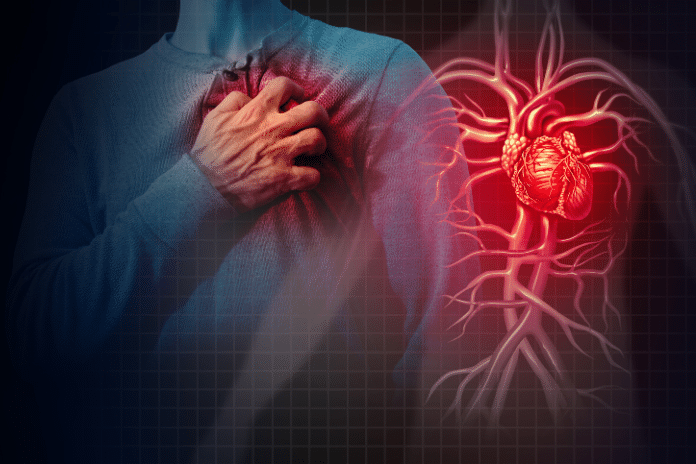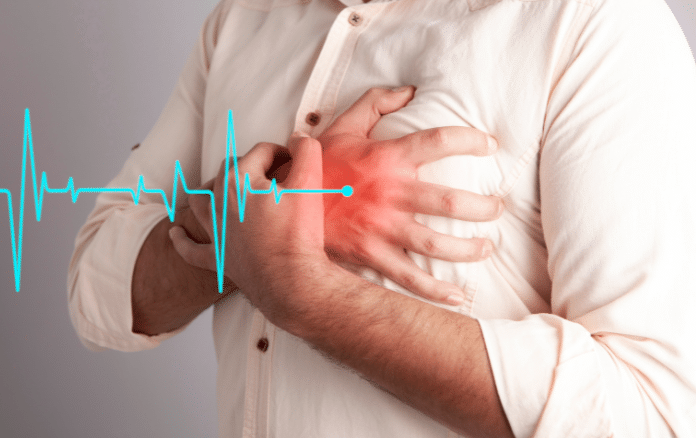Imagine this you’re going about your day when suddenly you feel a crushing pain in your chest, a shortness of breath that leaves you gasping, and an overwhelming sense of impending doom. These could be the symptoms of a heart attack, a medical emergency that strikes without warning and demands immediate action. In such critical moments, every second counts, and there’s a life-saving secret that could be the difference between life and death: the Golden Hour.
The term “Golden Hour” refers to the crucial first 60 minutes following a traumatic injury or a medical emergency like a heart attack. During this time, the decisions and actions taken can significantly impact the outcome, making it a window of opportunity for effective treatment and intervention. When it comes to heart attacks, this hour is especially critical, as the timely response can mean the difference between surviving with minimal damage or facing severe, life-altering consequences.
Understanding the Heart Attack

Before delving into the importance of the Golden Hour, it’s crucial to understand what happens during a heart attack. A heart attack, also known as a myocardial infarction, occurs when a part of the heart muscle doesn’t receive enough blood flow. This lack of blood flow is often due to a blockage in one or more of the coronary arteries, the blood vessels that supply oxygen-rich blood to the heart.
When these arteries become blocked, usually due to the buildup of fatty deposits called plaques, the heart muscle begins to suffer. Without oxygen, the affected part of the heart can start to die, leading to permanent damage. The longer the blockage persists, the more severe the damage becomes, which is why immediate action is crucial.
The Importance of the Golden Hour
The Golden Hour is crucial for heart attack victims because it presents a time frame where interventions can be most effective. During this period, emergency medical professionals, such as paramedics and doctors, can swiftly diagnose the heart attack, initiate treatment, and transport the patient to a hospital equipped to provide specialized care.
One of the most critical interventions during this time is the administration of clot-busting medications known as thrombolytics. These drugs can dissolve the blood clot causing the heart attack, restoring blood flow to the heart muscle and preventing further damage. However, these medications are most effective when given as soon as possible after the onset of symptoms, ideally within the first hour.
Beyond medication, the Golden Hour allows for the rapid transport of the patient to a hospital with specialized cardiac care facilities. Here, procedures such as angioplasty and stent placement can be performed to open blocked arteries and restore blood flow. The sooner these procedures are done, the better the chances of preserving heart function and preventing complications.
Recognizing the Symptoms
Recognizing the symptoms of a heart attack is the first step in taking advantage of the Golden Hour. While chest pain or discomfort is the most common symptom, especially a feeling of pressure, squeezing, fullness, or pain that lasts more than a few minutes, there are other signs to watch for:
- Discomfort in other areas of the upper body, such as one or both arms, the back, neck, jaw, or stomach.
- Shortness of breath with or without chest discomfort.
- Cold sweats, nausea, or lightheadedness.
- Unexplained fatigue or sudden weakness.
It’s important to note that not everyone experiences the classic chest pain symptoms. Women, in particular, may have subtler symptoms or experience discomfort in areas other than the chest.
Taking Action: What You Can Do
Knowing the signs of a heart attack and understanding the importance of the Golden Hour empowers you to take action and potentially save a life, perhaps even your own or that of a loved one. Here’s what you can do:
- Call Emergency Services: The moment you suspect a heart attack, call your local emergency number. Paramedics can begin treatment on the spot and transport you to the nearest appropriate medical facility.
- Chew Aspirin: If you’re not allergic to aspirin, chewing a regular, non-coated aspirin (around 325 milligrams) can help reduce the risk of further blood clotting.
- Stay Calm and Rest: Try to stay as calm as possible, and if you can, sit or lie down. Resting can ease the workload on your heart.
- Alert Others: If you’re with others, let them know what’s happening. They can provide support and assist emergency responders when they arrive.
Prevention: The Best Medicine
While the Golden Hour is crucial for treatment, prevention remains the best medicine when it comes to heart health. Lifestyle factors such as regular exercise, a healthy diet low in saturated fats and cholesterol, managing stress, avoiding tobacco, and controlling conditions such as high blood pressure and diabetes can significantly reduce the risk of heart attacks.
Regular check-ups with your healthcare provider can also help identify risk factors early and take steps to address them. Remember, taking care of your heart is a lifelong commitment to a healthier, longer life.
Conclusion
In the fight against heart attacks, the Golden Hour stands as a beacon of hope and a critical window for life-saving interventions. Understanding its importance, recognizing the symptoms, and taking swift action can make all the difference in surviving a heart attack with minimal damage.
So, the next time you feel that crushing pain in your chest or witness someone experiencing symptoms of a heart attack, remember the Golden Hour. It’s not just a concept—it’s a life-saving secret that could save a life, maybe even yours.
Act fast, stay informed, and prioritize your heart health. Your heart, and those of your loved ones, will thank you for it.


